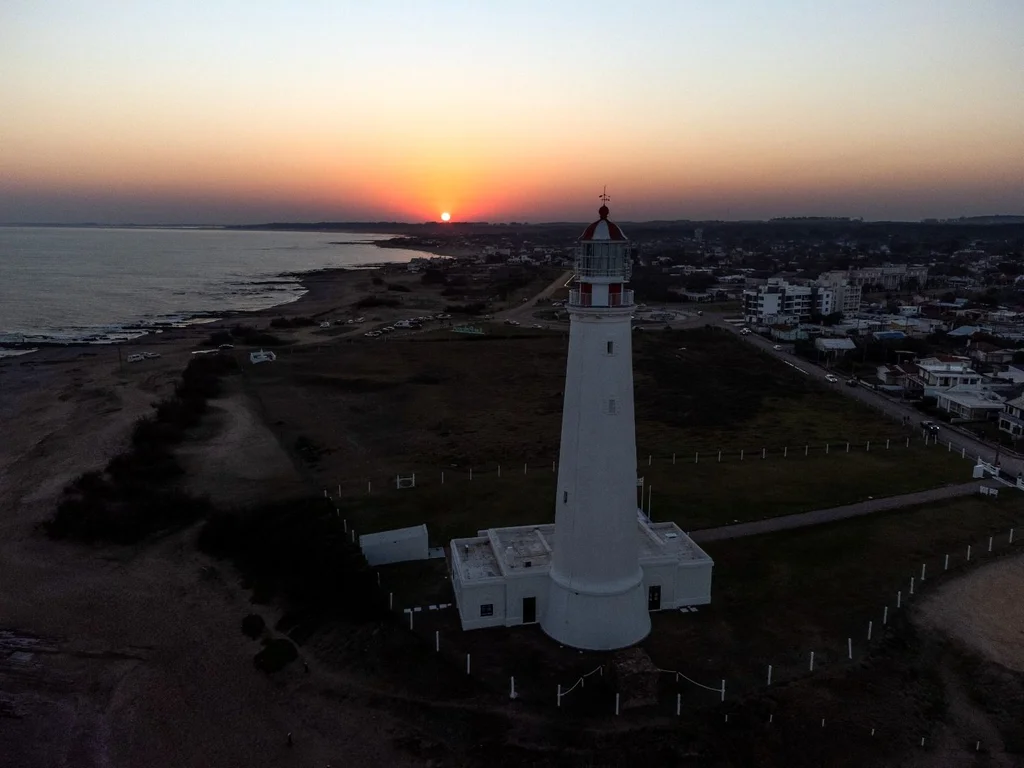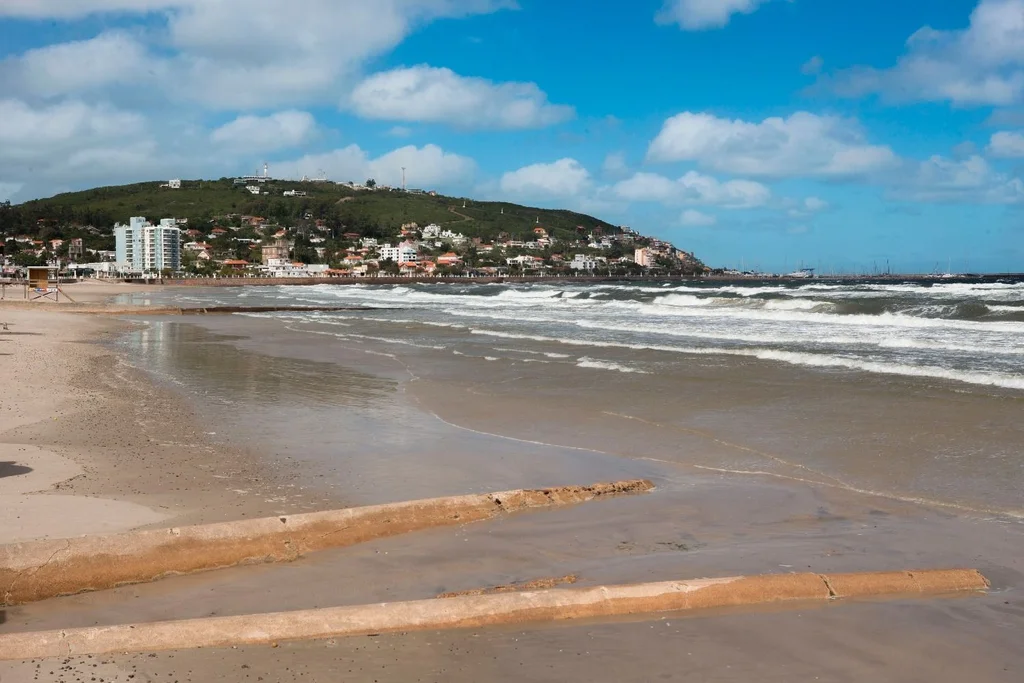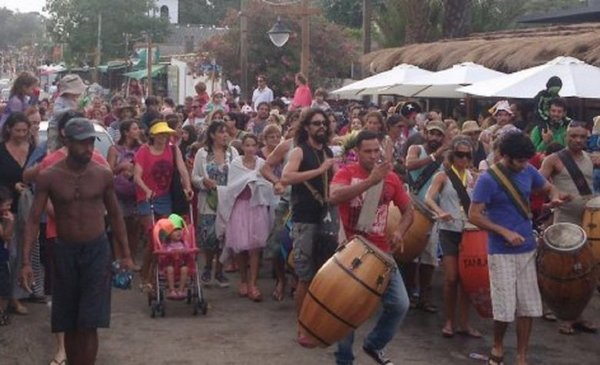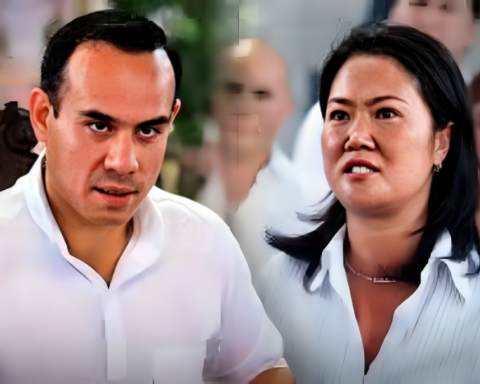Real estate operators negatively evaluated the summer season and prepare for the last peak of public for the spas, the carnival, without too many expectations.
Javier Sena, president of the Real Estate Chamber of Punta del Este (Cipem), said to The Observer that although the spa awaits “a lot of people” for carnival, they are mostly owners and people who go to the hotel sector. “For rent there are very few people, it comes extremely slow”, he alerted.
“People who are going to rent for a week are very few because those people come to hotels, to rent a house or apartment there are some who want to do it for three days but they are minimal, they do not move the needle”, he added.
Sena estimated that for carnival they will arrive in Punta del Este between 60% and 70% of the owners who usually come to the resort in high season. On the other hand, he indicated that in the case of rents, prices are 30% below January.
For its part, the president of the Punta del Este Hotel Center (CHPE), Analía Suárezsaid to The Observer that the movements for the sector in the face of carnival “it comes slow” unlike other years where reservations were made earlier but what do they have?confidence that the public can arrive” given that “this whole summer was like this, with more reservations about the date”.
Similar is the situation in Piriapoliswhere, as he said the president of the Piriápolis Real Estate Center, Beto Goiocarnival week “could be a fort” in the season, but clarified that “It is no longer the carnival of yesteryear that was a week or even 10 days” but today most people arrive “for three or four days from weekend to Tuesday”, a period of time for which Real estate agents do not rent since they do it for at least one week.
Miguel Arregui
The real estate agent Ricardo Pereyra, of More Properties, in La Paloma, Rochaindicated that some consultation has been received for carnival but that the reserve level is very low and at low costs. “What there are are more inquiries about prices”, he pointed.
Along these lines, he indicated that an average two-bedroom apartment and even a house are worth between $4,000 and $4,500 a day and there are some cases that can reach $3 thousand and up to $2 thousand.
“There is not much enthusiasm nor are there many reservations and since the classes start right there, it is very unlikely that it will be a week of carnival, it will be more like the four days and that is the end”, considered Pereira.
cannelloni Nor does it escape the low demand, according to what he told The Observer the President of the Association of Real Estate Agents of the Canelones Coast (Adicca), Daniel Santestevanwho argued that there are few reservations and that the greatest interest is in renting for the carnival weekendsomething that the owners they are not doing because they want to rent the whole week “so as not to lose the other days”.
“Today they say I prefer to bet on renting the whole week, if the date arrives it is not possible there if they are going to be encouraged to rent for three or four days”, he added. The busiest spa in Canelones is atlantis where, according to Carolina Panzardi, real estate partner Calipsothere are some queries for carnival “by Mercado Libre and by phone” but there is the panorama “very calm”.
Panzardi indicated that rent for a minimum of seven days and that the daily cost is between US$100 and US$150.

NICOLAS GARCIA / AFP
Season balance: first fortnight of January and nothing else
Sena indicated that the season was “very poor” except for holidays and the first fortnight of January where, although the occupancy levels were less than 2019, They were “happy because the border was opened and that moved everything.”
Suárez, for his part, explained that the first 15 days of January “they were bok” because “there is always an overdemand”. However, as of January 15, the demand “collapsed” and there were many cancellations.
“If we take all of January compared to 2019 or 2020, we are all between 25% and 30% less in billing and that taking into account that for hoteliers 2019 and 2020 were not very good years. If I have to compare it to years like 2017, we are at 50%”, he assured.
Regarding February, the president of the CHPE maintained that it was “extremely rare” and that except for 2021 where “there was no season” never been so bad. The hotel sector in February was at 65% occupancy “even with lower rates”.
In Piriápolis, from the holidays until January 15, the season was “very good, acceptable, positive” and the “best of the last three or four seasons” according to Goio. However, he indicated that these expectations generated in the first fortnight due to the number of people “began to fall in the second half of January” – aided by the weather – and for February the fall was “a slide down” reaching 50% less occupation and queries.

Raul Martinez/EFE
Goio remarked that although the internal tourism of Piriápolis “is very good” and that the Uruguayan “always answer”, was surprised at Argentine public – Mainly from Santa Fe, Corrientes, Entre Ríos and some from Córdoba – that this year it came to a lesser extent due to the exchange rate difference which makes it more expensive to come.
For Pereyra, the sector in Rocha went from a great first fortnight of January to a sharp drop for the second of January and the month of February what were “very inferior“with a demand”very low”.
The same scenario had Canelones with a strong demand for the first fortnight of January and significant drops for the rest of the season.
All the operators agree on how the movement of the season was and they also maintain that although it was better than the previous one – with closed borders – it was not possible to reach pre-pandemic season numbers.
Extra concern: unfair competition
According to Suarez, The main problem that the hotel sector is having is that of “unfair competition” of “all the apartments that are rented outside of the formal circuit”. Along these lines, he indicated that they are “independent owners who rent for what they can or what they need to avoid paying expenses, for example, then there is competition from a number of apartments that already quadruple the number of hotel beds (which are approximately 20,000) and that drive down the price”.
“There are a number of apartment offers that are sometimes half a building, that are rented as a hotel and that even have the services and amenities of a hotel. That is paid for by the co-owners and nothing pays a peso so of course, if I need it, for US$ 50 I am happy, I rent my apartment and I compete with a hotel that has to bear all the costs. The hotel that cannot have that rate because if it does not melt”, explained the president of the CHPE.
According to Suárez, the occupancy data that the hotel sector can provide is “very biased” given that “there is a variable that is not taken into account, which is the people who stay in apartments that nobody registers or reports to the Ministry of the Interior (MI)” as hoteliers do.
Along the same lines, Goio stated that there is a “great informal competition” since today “behind a computer anyone rents, sells and is not registered, does not have a company or pays taxes”.
“It is not Doña María who is renting her own house, but rather people who rent several houses to you, they officiate as real estate without being one, without being registered with the Ministry of Tourism (Mintur) and without contributing to the Social Welfare Bank (BPS) or the General Tax Directorate (DGI) and all the formalism that we must have; that makes the sector devalue”, he pointed.
The Mintur has a bill to regulate the rental of houses and apartments through digital platforms such as Airbnb and Booking. The idea is that the properties have to be registered in order to be promoted on those sites. However, it has not yet prospered.


















